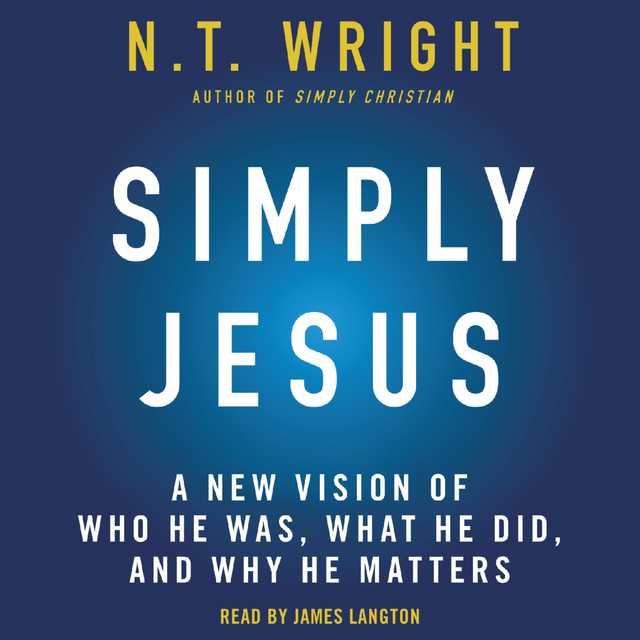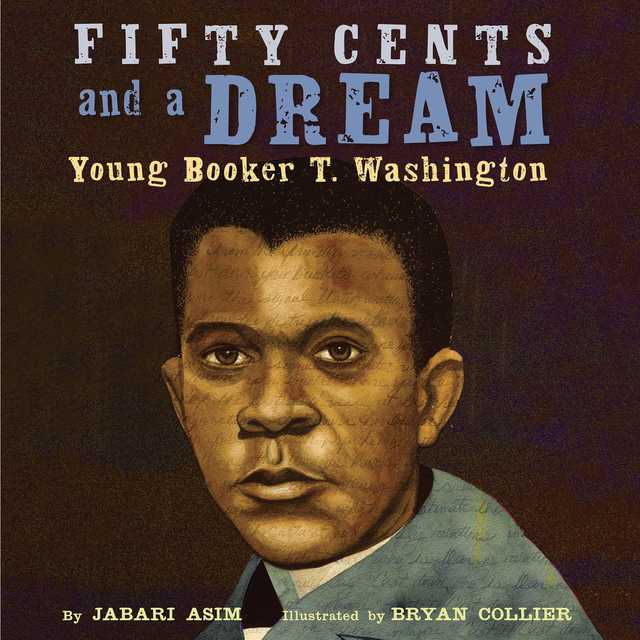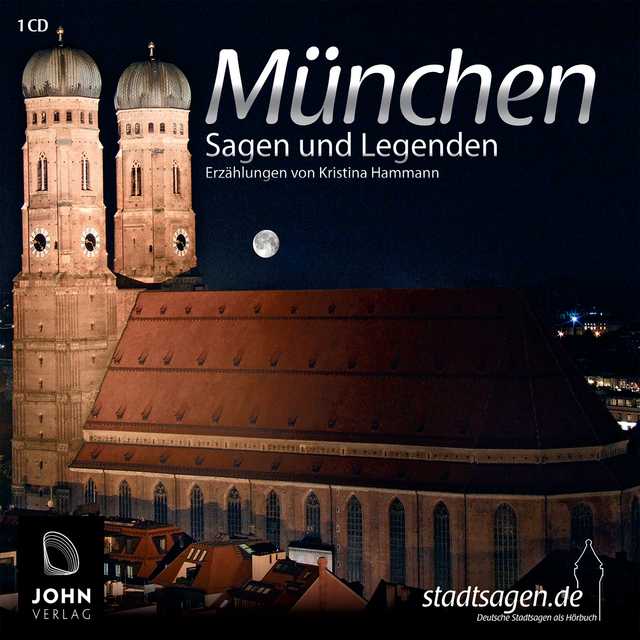Simply Jesus Audiobook Summary
In Simply Jesus, bestselling author and leading Bible scholar N.T. Wright summarizes 200 years of modern Biblical scholarship and models how Christians can best retell the story of Jesus today. In a style similar to C.S. Lewis’s popular works, Wright breaks down the barriers that prevent Christians from fully engaging with the story of Jesus. For believers confronting the challenge of connecting with their faith today, and for readers of Timothy Keller’s The Reason for God, Wright’s Simply Jesus offers a provocative new picture of how to understand who Jesus was and how Christians should relate to him today.
Other Top Audiobooks
Simply Jesus Audiobook Narrator
James Langton is the narrator of Simply Jesus audiobook that was written by N. T. Wright
N. T. Wright is the former Bishop of Durham in the Church of England and one of the world’s leading Bible scholars. He serves as the chair of New Testament and Early Christianity at the School of Divinity at the University of St. Andrews as well as Senior Research Fellow at Wycliffe Hall, Oxford University. He has been featured on ABC News, Dateline, The Colbert Report, and Fresh Air. Wright is the award-winning author of many books, including Paul: A Biography, Simply Christian, Surprised by Hope, The Day the Revolution Began, Simply Jesus, After You Believe, and Scripture and the Authority of God.
About the Author(s) of Simply Jesus
N. T. Wright is the author of Simply Jesus
More From the Same
- Publisher : HarperAudio
- Abraham
- American Gods [TV Tie-In]
- Dead Ringer
- House of Sand and Fog
- Prey
Simply Jesus Full Details
| Narrator | James Langton |
| Length | 10 hours 30 minutes |
| Author | N. T. Wright |
| Publisher | HarperAudio |
| Release date | October 25, 2011 |
| ISBN | 9780062099686 |
Additional info
The publisher of the Simply Jesus is HarperAudio. The imprint is HarperAudio. It is supplied by HarperAudio. The ISBN-13 is 9780062099686.
Global Availability
This book is only available in the United States.
Goodreads Reviews
Trevor
May 01, 2013
This book should be titled: "Jesus: It's Complicated"As could be expected, in this book Wright attempts to open up his dense and nuanced arguments from Jesus and the Victory of God for the non-academic audience.Trouble is, he has already boiled down those arguments in The Challenge of Jesus. Basically the conclusions in this present work are the same as those he's already put forward several times before (so I can't see why the subtitle mentions a "new vision" etc.), but Wright has a brilliant mind and is able to say the same thing in new ways. The new image here is that of a "perfect storm." I liked that imagery and I think it created some coherence as he proceeded through his proposals about who Jesus was/is and what he did/is doing.Personally, I think that if you're not going to read the big academic book (Jesus and the Victory of God), then you should read The Challenge of Jesus instead of this one. Whichever book about Jesus you choose to read, I don't think you'll ever walk away thinking "that was simple" - if you do, then it probably isn't the historical Jesus you were reading about!
Danny
February 27, 2015
When I read this book in 2012, it was my first Tom Wright book, which in my tradition comes with all sorts of baggage. Add to that, I had been a pastor for about 7 years, and had little interest in any book touting a "new" vision of anything related to Christ or Scripture. But I'm never one to allow my tradition to define for me how I feel about something, so I bought this book as an entry into Wright's work.I was stunned. Despite having been a well read pastor with a college degree in biblical studies, I read this book and my ideas about exactly how Jesus relates to the world, the church, and the covenant were completely turned upside down. Wright perfectly blends historical critical analysis and exegesis with theological insight, and explains the Christ event through the analogy of "the perfect storm," a collision of the Roman Empire, Jewish expectations, and the purposes of God. His insights about the life and work of Jesus are penetrating.Since reading this book I've read much more of Wright's work, I've met him, and as I've moved on in academia I've been able to dialogue with him over email about my work. He is charitable and helpful, and this book was a perfect popular level entry point into his views on Scripture.
Paul
January 20, 2013
If you could rate a book by how much underlining you do, this one would be among the highest rated in my collection. Wright takes a position on key debatables (e.g. "when did Jesus realize what his role was in history?") But he goes farther than this, tying together key themes that cross the boundaries of covenant, history, struggle, and place. His key theme is that there is not so much of a difference in the place of Heaven and Earth, and that the reign of God on earth has already started. The implications for the Church to be the Body of Christ and to have impact in the "making Your kingdom come on earth" prayer something more than the words in the first third of the Lord's prayer.This is not a great "welcome to Christianity" apology for the Gospel. But it is a great place for mature believers to dig into some of the big questions that linger after faith as taken hold of your life.
Edward
October 10, 2020
Wright’s book is about a perfect storm, metaphorically speaking. As Wright explains it, “. . .the perfect storm: the buildup of pressure from the Roman Empire in one direction, the thousand-year hope of Israel from another direction, and the cyclone itself, the strange and powerful purposes of God sweeping in from yet a third angle.” For the Romans Israel was a small but strategic province in the middle east which had to be controlled through a system of local surrogates who imposed taxes, and the threat of force in the form of the Roman Army For the Israelites, the hope was to create an independent kingdom which would be free from Roman domination. The third force was the appearance of Christ which caused initial confusion. He was either seen as a rebel, or as the promised messiah who would deliver Israel, or subsequently as a divine figure who through his resurrection would establish new “kingdom”, one of spiritual, not material values. All of this has caused , confusion and controversy, and Wright attempts to create clarity as to what Christ was all about. His hope is that he can clarify the questions implied in the title of his book, and suggests in the end that the question of Jesus is important, not only in religious or spiritual terms, but in all areas of western cultural life such as justice, beauty, friendship, ethical norms. Wright is humble and readily admits that he cannot even begin to discuss all of these areas in one book , but he does want to give a fresh glimpse of Christ’s life. He emphasizes that Christ’s mission was not “to rescue people from this world for a faraway heaven, but in order that God’s kingdom may be established on earth as in heaven.” That implies such bedrock essential values as forgiveness and healing, a message that is repeated throughout Jewish history by the prophets, and is brought to fulfillment in Christ’s crucifixion on the cross. That would be the culmination of the Jewish hope for a king and the restoration of the Temple where God would make his presence known. Christ’s body, his life, if I understand Wright correctly, would be a redefined “temple” and his teachings wold represent a type of “kingdom”, never completely realized on earth, but one that aspires to the presence of justice, tempered by love. Attempts to establish such a kingdom meant harsh recriminations from the Romans who considered it political rebellion. It’s always difficult when talking about Christ to strike a balance between seeing him as an enormously gifted human being, but still human, and a divine and transcendent being truly sent from God. All of which would lead to later theological disputes about the essential nature of the “god-man.” It is impossible to totally escape from such speculation, but Wright is not interested in such disputes, only in depicting the historical meaning and lasting reality of Christ, and his is a very creditable effort.
Adam
September 26, 2013
(From my blog - http://disciplernetwork.blogspot.com/...)One thing I can certainly say about N.T. Wright is that he is consistent. So far, across the four books I have read by him, he challenges the conventional notions that Christians have accumulated over the years about Jesus. Wright indeed gives a new vision of who Jesus really was, what he did, and why he matters.Conservatives need not fear, Wright is not pushing some liberal agenda. He is trying to help us take a historical and theological approach in our understanding of Jesus. Wright does affirm the trinity. He does affirm the second coming of Jesus. What he does not do is parrot either the liberal Christian agenda nor the conservative fundamentalist agenda.Wright contends that the gospels are more than theological. They require us to use good historiography when we interpret them. He says concerning history:"The third element is the sheer historical complexity of speaking about Jesus. The world of first-century Palestinian Judaism - his world - was complex and dense in itself. Anyone who has tried to understand today's Middle Eastern problems can be assured that life was every bit as complicated in the first century as it is now."This should tell us that Wright is not pushing some agenda, except the agenda of trying to get the story right. He is trying to get a more accurate picture of who Jesus was, what he did and why he matters. There are three strands that he picks up in this book. He uses the picture of the perfect storm. A storm where three large storms combine into one to make one gigantic storm. The three storms are the Roman state, the Jewish state, and the purpose of God. A good historian should take all three of these into consideration when studying first century history.He says of the purpose of God (page 54-55): "This claim can never be, in our sense or indeed in the ancient sense, merely "religious." It involves everything, from power and politics to culture and family. It catches up the "religious" meanings, including personal spirituality and transformation, and the philosophical ones, including ethics and worldview. But it places them all within a larger vision that can be stated quite simply: God is now in charge, and he is in charge in and through Jesus. That is the vision that explains what Jesus did and said, what happened to Jesus, and what his followers subsequently did and said. And what happened to them too."In light of the above statement, we see that Jesus: "commands his hearers to give up their other dreams and to trust him instead. This at its simplest is what Jesus is all about."So the bottom line is that Jesus wants his followers to see everything from his point of view and refuse to follow the state or culture. Instead we are to submit to the kingdom of God and the agenda of Jesus in the world. Jesus was not just about salvation, he was, but he was also about ministering to the needs of the world.One other point Wright makes in the chapter "Space, Time, and Matter" is interesting. Wright's understanding of heaven is different than the typical evangelical understanding. Heaven in a sense intersects this world in a way we don't realize. Heaven and earth are joined in Jesus. Wright says: "In other words, the joining place, the overlapping circle, was taking place where Jesus was and in what he was doing. Jesus was, as it were, a walking Temple. A living, breathing place - where - Israel's - God - was - living."In this sense the evangelical understanding of "going to heaven when we die" is misguided. Heaven is not so much a place we go to, but is found in a Person. Jesus promises in the Bible that there will be a new heaven and a new earth. It may be like Eden in Genesis, where men will walk with God in the cool of the day. The point is not that heaven is some ethereal place way out there in outer space, but is firmly planted in this context.So who is Jesus? We need to see him not only as the Savior from sin, but also the redeemer of that which is broken. Jesus is the great healer and restorer. Jesus embodied heaven and earth in himself. He is the ruling authority, the great King. The world's agenda and culture must bow before the kingdom of God. Jesus provided a way of reconciliation, not only with God in his sacrifice on the cross, but also with the world in the sense that we are to live out the kingdom in the world. We are to love those ensnared by the world. We are called to redeem the time because the days are evil. God has prepared good works for us to do that show God's love and his healing power for a broken world. Finally, Jesus matters because his way is the only way that leads to eternal life. Not in some ethereal place way off in space, but eternal life that is the intersection of heaven and earth in the Person of Jesus Christ.
Jim
December 31, 2019
At first, I was kind of disappointed as I read through this book. Wright walks us through what Jesus was trying to teach about the "kingdom of God," who he thought he was, etc. This is all ground Wright has covered before. But what I didn't realize was that he was laying the groundwork for a thrilling last section of the book.In the last 50 or so pages, Wright gives an explanation of the Christian's current role in the kingdom of God - what we should be focused on and doing, what specifically our mission is until his return. But he zeroes in on something more specific - How should we view the *current* kingdoms of this world in light of God's kingdom? What is our role in them? What kind of governments and leaders should we be pulling for, and how should we be involved? How does God use them?This is the first time I've ever heard a good, clear, biblical answer to any of these questions. It's a powerful book that hit me like a thunderbolt. It will definitely change how I vote in elections moving forward, and that was probably the biggest takeaway for me from the book. But I hope it also causes me to adjust how I see myself in the coming/current kingdom.(One small gripe - "Simply Jesus: A New Vision of Who He Was, What He Did, and Why He Matters" is a terrible title for this book. This isn't a "new" vision of anything, and the original British version of this book leaves the word "new" out of the title. I assume the word was put in there to sell more books, but it gives the impression that this is something no one has ever thought of before. In reality, Wright is giving an original, biblical view of God's kingdom.)
Cameron
July 18, 2013
N.T. Wright's Simply Jesus, though slow in the beginning, shows a refreshing new (or old) way of looking at Jesus. The book is aimed at putting Jesus in his historical and cultural context, and thereby showing Jesus' purpose in his ministry and how his actions across Israel contributed to that ministry. Resulting from this analysis of Jesus' life, is a more down to earth figure that is very different than how many Christians view Jesus today. Having originally come from a Christian faith that believed that Christ just came to show us a way to heaven, I found this book' incredibly helpful as it gives the Christian faith a more practical significance. Moreover, N.T. Wright seems to have struck the middle as it were between the theological left and the right (though I would argue it is leaning more to the left), expressing that Jesus' life and resurrection has just as much significance right now as it will in the end. My one complaint about this book was the pacing. When reading through this book, I found myself heading into numerous sorts detours before getting to the actual substance. It seemed that as soon as you thought you were about to get to a key point, you were introduced to some supplementary material that you were not expecting. The book takes a while to deliver, but it does well in the end.
Daniel
May 22, 2013
There may be no one better on 'Jesus and the gospels' today than NT Wright. It's hard to put books like this down.The only critique is that Wright's polemical style surfaces every so often when it is unnecessary. And I think this gets him into hot water where some folks claim Wright denies the divinity of Jesus. (Which he doesn't.) I think Wright was his own worst enemy in some ways with the NPP debate in North America.I contend that Wrightian Christology is coherent with Reformed Christology in their best forms.
William
June 15, 2019
An inviting and compelling book. I've come away with the opinion that Jesus is far more interesting, far more controversial, far more political, in lots of ways 'far more' than I previously understood. Tom Wright opens up speaking of perfect storms, winds coming from different directions from which the collision creates something of a spectacular event. Likening the winds of liberal scepticism versus the winds of conservative Christianity, we can be caught up in the storm from when these winds clash with each party demanding you hold their view of faith, Christianity and Jesus himself. Tom would argue that both have some merit in their argument, but have missed the message, the build up, the historical context, the long awaited hope, the failures of other would be messiahs, which when known makes the gospels far more vibrant in meaning. The viewpoint and expectations of 1st century Jews is an important one to understand. From it, we can see better how Jesus' role and fulfilment as the Messiah fits into God's plan to rule as King, with a Kingdom on earth as it is in heaven, and how through his people he will transform the world.It's a book that gave me joy in reading as I learned new back stories, giving context to a lot of what is said by key figures in the Gospels. However, at the same time it caused worry and a sense of loss that I didn't know or understand these things sooner. The book gently warns me that there is a Western perception of who Jesus is and what he came to do, which isn't entirely accurate. The reading of some chapters flowed swiftly, others needed rereading again; and still I would want to read it all again later this year. I walk away knowing Jesus better, wanting far more to engage in his Kingdom plans for the world, through the function of his body - the church.
Brandon
January 31, 2022
I really love N.T. Wright's perspective on Jesus as it pertains to Kingdom Theology. Wright approaches scripture from a Jewish perspective, which is crucial in understanding texts of Paul and the Gospels in their original context. I think that's what makes this book so good, he spends a lot of time building up the context of the Greco-Roman world of the first century and spends ample time describing some Jewish Messianic thought prior to the time of Jesus (primarily from Isaiah, Daniel, and Zechariah) - i say some because i think he could've gone way deeper, but he described at length his opinion on Jesus as the Messiah, which is God becoming King on earth through the human, Jewish Messiah. While I love all of this set up, I found that the actual time spent discussing Jesus and his teachings to be a bit too "simple" (pun intended) and wish he would've dug deeper. I understand that is the consequence of reading a popular 250 page book and not a 500 page academic work, of which Wright has plenty. But that minor criticism is why I give this book 4 instead of 5 stars, and I highly recommend Christians to give some of Wright's works a read, he is very smart and biblically sound in his approach. Understanding this is more of an introduction to the study of Jesus and not a fully detailed walk through the Gospels is important to note, that this is more of a starting point.
Rhidge
December 14, 2020
Wright beautifully and elegantly invites his readers to consider a different perspective of Jesus. Jesus is so much more than the Western church paints Him to be. He is riveting, challenging, beautiful, wonderful, and so much more. I would recommend this book to anyone.
Sara
March 04, 2020
Dense and nuanced, a refreshing way of looking at an old figure. Wright is adept at skirting the heretical, while challenging long held notions and suppositions.
Jake
February 05, 2022
Simply fantastic. Wright gives us in clear language how to look at Jesus in His historical context and the establishment of the kingdom of God. Part 2 is where all the excellent meat is to chew on, especially about the Temple and what it meant to the original audience of Jesus.
David
February 15, 2017
Reading NT Wright is good for my soul. When I read his books it makes me think, makes me want to know Jesus, and makes me want to do something.This is another sensational offering from Wright. He places Jesus in his first-century Jewish context and gives us a vision of what this Jewish peasant was trying to say, do and accomplish. Wright goes against the grain of two popular ways of looking at Jesus. On one side are conservatives who say Jesus simply came to die in our place, taking God's wrath that we deserve, so we can float off to heaven when we die. On the other side are liberals who say Jesus taught a lot of good that we can follow to work for social justice. Wright's view of Jesus goes right down the middle. Both sides are right in some things: Jesus was concerned with spiritual truths and ultimate destinies (though going to heaven when you die is not the point) and Jesus was also concerned for justice in this world now. But both sides are also off in other things.What I appreciate most about Wright's work is that he shows how Jesus understood himself as a human with a mission, but through this how Jesus also represented God. Many Christians I know tend to read the Gospels through the Council of Nicea, so they at times make statements like, "well we know Jesus was God so..." That is not taking the Gospels in their own context. Wright instead tells a story of how God's presence had deserted the Temple and in Jesus, God was returning to the temple. You end up in the same place, with Jesus being God, but you get there in through the Gospel stories, not in spite of them.Overall, this book should be read widely. Pastors and Christian leaders should read it to get a better, broader, understanding of Jesus. Lay readers interested in the subject could benefit too. It could be used in Bible studies and Sunday school classes or any other venue where people are discussing Jesus.
Joel
March 08, 2021
In Simply Jesus, N.T. Wright delivers a refreshing vision of Jesus' life and mission on Earth, as well as the larger role Jesus plays in God's grand narrative. Wright expertly places Jesus in his first-century Jewish context, something most modern Christians fail to adequately consider. Jesus' role as the perfect fulfillment of the meta-narrative of the Old Testament offers both validation and surprise to the various competing views of the Messiah among first-century Jews. Wright describes Jesus's life and mission as the perfect response to a "perfect storm": the Jewish hope in a Messiah figure, the dominance of the Roman Empire, and God's grand plan for redeeming humanity to himself. The vision that Wright weaves through a combination of history, Hebrew theology, early church thought, the first-century culture, and the meta-narrative of Scripture reveals the beautiful tapestry of God's work in the hearts and lives of humanity throughout time. Reductionistic formulations of the gospel as "going to heaven when you die", "salvation from the penalty of individual sin", and "Jesus as a moral example" pale in comparison to the holistic perspective of Jesus offered in this book. Readers will finish the text inspired and impassioned to share the mission of Jesus among a world (and a Church) that misunderstands and undersells what he was all about.
Frequently asked questions
Listening to audiobooks not only easy, it is also very convenient. You can listen to audiobooks on almost every device. From your laptop to your smart phone or even a smart speaker like Apple HomePod or even Alexa. Here’s how you can get started listening to audiobooks.
- 1. Download your favorite audiobook app such as Speechify.
- 2. Sign up for an account.
- 3. Browse the library for the best audiobooks and select the first one for free
- 4. Download the audiobook file to your device
- 5. Open the Speechify audiobook app and select the audiobook you want to listen to.
- 6. Adjust the playback speed and other settings to your preference.
- 7. Press play and enjoy!
While you can listen to the bestsellers on almost any device, and preferences may vary, generally smart phones are offer the most convenience factor. You could be working out, grocery shopping, or even watching your dog in the dog park on a Saturday morning.
However, most audiobook apps work across multiple devices so you can pick up that riveting new Stephen King book you started at the dog park, back on your laptop when you get back home.
Speechify is one of the best apps for audiobooks. The pricing structure is the most competitive in the market and the app is easy to use. It features the best sellers and award winning authors. Listen to your favorite books or discover new ones and listen to real voice actors read to you. Getting started is easy, the first book is free.
Research showcasing the brain health benefits of reading on a regular basis is wide-ranging and undeniable. However, research comparing the benefits of reading vs listening is much more sparse. According to professor of psychology and author Dr. Kristen Willeumier, though, there is good reason to believe that the reading experience provided by audiobooks offers many of the same brain benefits as reading a physical book.
Audiobooks are recordings of books that are read aloud by a professional voice actor. The recordings are typically available for purchase and download in digital formats such as MP3, WMA, or AAC. They can also be streamed from online services like Speechify, Audible, AppleBooks, or Spotify.
You simply download the app onto your smart phone, create your account, and in Speechify, you can choose your first book, from our vast library of best-sellers and classics, to read for free.
Audiobooks, like real books can add up over time. Here’s where you can listen to audiobooks for free. Speechify let’s you read your first best seller for free. Apart from that, we have a vast selection of free audiobooks that you can enjoy. Get the same rich experience no matter if the book was free or not.
It depends. Yes, there are free audiobooks and paid audiobooks. Speechify offers a blend of both!
It varies. The easiest way depends on a few things. The app and service you use, which device, and platform. Speechify is the easiest way to listen to audiobooks. Downloading the app is quick. It is not a large app and does not eat up space on your iPhone or Android device.
Listening to audiobooks on your smart phone, with Speechify, is the easiest way to listen to audiobooks.






























